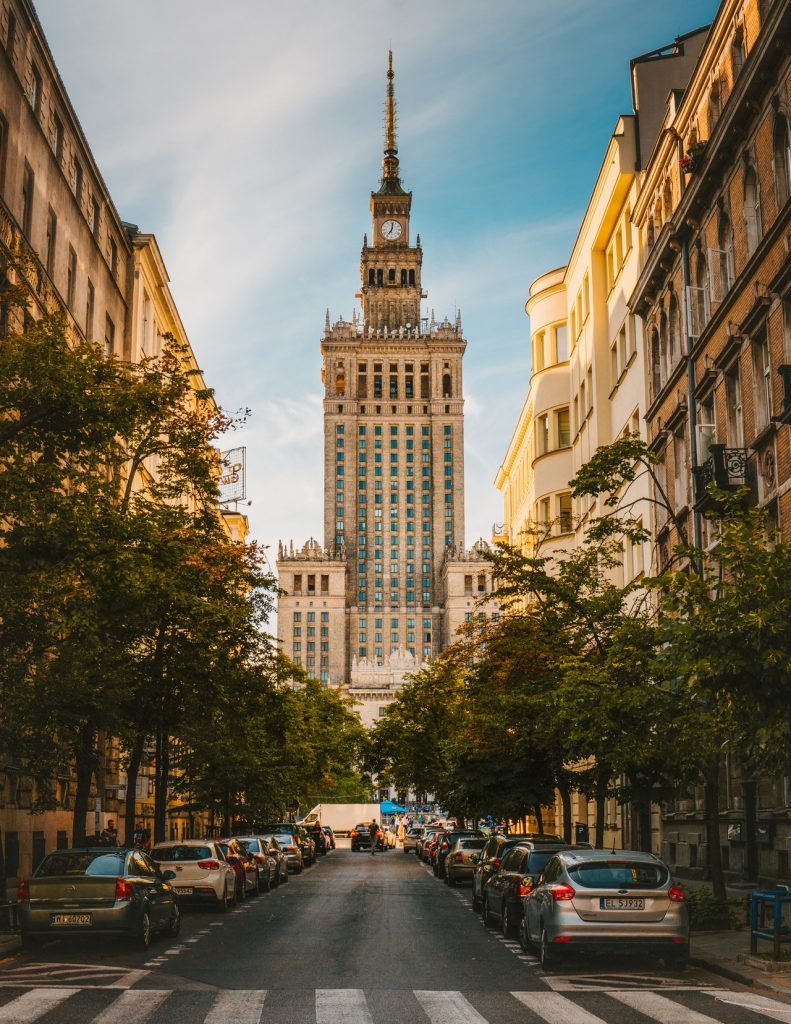Pros, Cons and Costs to Retire in Nicaragua
This Central American country may be perfect if you enjoy outdoor activities and tropical scenery. So it’s no wonder thousands of Americans (specific statistics are at the end of the article) decided to retire in Nicaragua.
Nicaragua is called the “land of lakes and volcanoes,” and landscape variety and a tropical climate make this a popular tourist destination. Living in Nicaragua means embracing the outdoors. It’s a unique and interesting country with relaxing beaches, friendly locals, and levels of violence that, when compared to neighboring countries like El Salvador, Belize or Honduras, are surprisingly low.
To put it into pespective, here is a violence comparison using homicide rates:
- El Salvador – 52 murders per 100,000 residents per year.
- Honduras – 38.9 murders per 100,000 residents per year.
- Belize – 37.8 murders per 100,000 residents per year.
- Nicaragua – 7.2 murders per 100,000 residents per year.
Impressive, right? So let’s dive into the details of retirement in this central American country.
Our consultancy’s team wrote this article after similar pieces about other hot retirement destinations (including a list of the best countries to retire in the world), such as:
Our list of 24 countries with retirement visa programs is a must-read if you’re thinking about retiring abroad.

Living in Nicaragua Pros and Cons
Pros of Living in Nicaragua
Nicaragua is a great place to spend your retirement years because it has a low cost of living, a beautiful and diverse landscape to explore, a healthy lifestyle (if your income is enough to pay for it), a lively culture with friendly people, and cheap property.
Here’s a more in-depth look at the various pros of retiring and living in Nicaragua.
Cost of Living
The cost of living in Nicaragua is 48% lower than in the United States, with rental prices on average, 84% lower than in the U.S. This is especially appealing for U.S citizens looking to make their money stretch a little further, and enjoy their retirement years in a beautiful property with perhaps some jaw-dropping views.
Nicaragua is also one of the cheapest Central American countries to live in, making it a great choice for retirees looking to enjoy a great quality of life for a lot less money than in the United States, Canada, or Western Europe.
Culture and Food
Nicaragua has a colourful culture. There’s a big mix of influences, from the indigenous people (Chorotega and Nahuatl) to the Spanish and Africans. It’s a wonderful blend of traditions that makes Nicaragua a fascinating and vibrant country to visit.
The food here has a Spanish influence and contains items such as corn, beans, plantains, yucca, and peppers. It’s extremely delicious and very affordable! Common dishes to taste include Chicharrones: deep-fried salty pork skin, and Gallo Pinto: rice and beans which is often mixed with coconut milk on the country’s Caribbean coast.
Variety of Things To Do
Nicaragua has a huge range of things to do, there is something for every lifestyle.
For adventure lovers, try something unique such as volcano boarding. You can also try out surfing, diving, or kayaking. There are waterfalls to explore and hiking trails up to volcanoes to attempt.
For the not-so-adventurous, you won’t be disappointed. Wander around colonial cities such as Granada and Leon soaking up the atmosphere, enjoy some delicious Nicaraguan cuisine, or spend your days relaxing on the beach with a good book, or two.

Property Investment
Looking to invest in some property whilst you are living the retirement life? Nicaragua might be one of the best places in Central America to do it! One of the great things about the country is that you don’t need to be a citizen to buy property, so you could get your hands on a fabulous place before you make the move over.
Property is extremely affordable in the country, and with an increase in spending on infrastructure, and growth within the tourism sector, this is likely to make investing in property a worthy business venture.
Out of country earnings are not taxed
If you live in Nicaragua and get money from outside the country (eg: your pension) and put it in your own bank account, you don’t have to pay personal income tax on it.
Yes, you read it right. According to Joel Stott-Jess, your income from abroad is tax-free if you receive the payment directly to your personal account.
Retire in Nicaragua: The Challenges

There are lots of reasons to choose Nicaragua as your retirement haven, but what about the cons of living in Nicaragua? What sort of things might you need to consider when deciding to move to this Central American country?
Here are some of the main disadvantages of living in Nicaragua:
Infrastructure
Nicaragua is still a relatively undeveloped country, with a lack of infrastructure compared to what you might be used to coming from a western country such as the United States.
Although the government has invested a lot in infrastructure over the past few years, and tourism has boomed within the country, they still have a long way to go. This may be something to consider as it may be a difficult challenge for some.
Safety
As is usually the case with undeveloped countries, safety is usually a big factor. Nicaragua is a relatively safe country, but there are instances of certain crimes such as robberies, break-ins, and muggings, particularly in larger cities such as Managua where street crime is common.
Foreigners should avoid travelling alone at night time on public buses, and take care when walking around markets, and when visiting poorer areas of the country. Never hail an unauthorised taxi, and allow the restaurant or hotel to call a taxi for you, not someone that you don’t know well. Avoid carrying around large amounts of cash, or wearing expensive jewellery. Enjoy your time exploring Nicaragua but always be vigilant and aware of your surroundings.
There has been political turmoil in the country since 2018, which has caused over 200,000 Nicaraguan citizens to flee the country, many of them moving to the neighbouring country of Costa Rica. However, political disruptions have quietened down in recent years, but foreigners are advised to avoid demonstrations and gatherings.
Healthcare
Nicaragua has an universal and public healthcare system that improved recently, waiting times can be high and the system may be overloaded at times.
The private healthcare system, however, has very affordable treatments available when compared to prices in the US. There are some charges for additional services, but again this is all incredibly affordable. For this reason, expats retiring in Nicaragua may want to consider purchasing health insurance and looking at private healthcare.
Language Barrier
Almost everywhere in the country the language spoken is Spanish, and English is limited apart from on the Caribbean coast, where English is spoken alongside indigenous languages.
It will be almost necessary to learn Spanish if you plan on retiring in Nicaragua. It will make it easier for you to integrate into the local way of life, make friends with Nicaraguans, show respect, and for life to be far easier.
If you need to visit a doctor or healthcare provider, it is unlikely they will speak English so knowing some Spanish will help them provide the right care for you if you can effectively communicate your concerns or needs.
How Much Money Do I Need To Retire in Nicaragua?

To qualify for a retirement visa, you must receive a monthly amount of $600 in permanent income (or monthly equivalent in other currencies). This could be a pension or social security, or another source of income. With such a low requirement, it is likely the most accessible retiree program in the Americas.
The cost of living in Nicaragua is extremely low, meaning your money will go very far in this beautiful country.
Depending on the size of the apartment and the location, rent prices are between $250-$500 a month. Basic utilities, including water, electricity, heating, cooling, and rubbish, are around $63 per month.
If you are looking to buy instead of rent, good news: properties are very affordable. Prices will differ depending on where you want to live. Still, a 2-bed, 2-bath, 110-metre square, ocean-view apartment in the popular area of San Juan del Sur is available to purchase for $165,000.
A three-course meal for two people at a mid-range restaurant will cost around $29, coffee comes in at around $2, local beer is $1.30, and imported beer will cost you around $2.20.
Buying food from a supermarket or grocery store will be inexpensive. Milk is around 99 cents, a loaf of bread costs $1.35, and 12 eggs will cost $1.84. A kg of fruit or vegetables such as bananas, oranges, onions, or potatoes will cost you less than $2.00, and a mid-range bottle of wine will be less than $10 at around $9.90.
Transportation in the country is extremely low too, with a one-way local ticket costing as little as 19 cents, and a monthly local transport pass costing around $10.
A monthly fitness club fee for one adult will cost around $29, so there’s no excuse not to stay fit and healthy during your retirement years.
How Much Is a House in Nicaragua
In a medium city like León you can find a nice house with 120 square meters or more for less than US$100,000.
If you want to spend your retirement in a luxury property, you can buy a house with a large swimming pool that could easily be a filming location for a hollywood movie for US$350,000. Here we are talking about a mansion with 10 parking spaces, multiple bathrooms and the whole package, located inside a gated community.
Cost of Living in León (Nicaragua) vs Valência (Spain) and Tampa (the USA)
It’s time for a comparison of the cost of living in Nicaragua. I will not compare the living costs of this central american country with those of New York or London, because nearly anywhere in the world is cheaper than those two cities.
Let’s compare the cost of living in León (the second largest city in Nicaragua, and one of the best places to retire) with the best city for retirement in Europe (Valencia, Spain) and one of the favorite cities for pensioners in the USA (Tampa, Florida).
Remember that there are other cities in Nicaragua that are also nice places to retire, and you can check them on our list at the end of this article.
Prices are from Numbeo and Expatistan, two websites that crowdsource prices and living costs from thousands of users and contributors, and from Encuentra24.
| Values in USD | León | Valencia | Tampa |
| Meal for 1 Person, Inexpensive Restaurant | 4.79 | 11.59 | 21 |
| Domestic Beer (0.5 liter draught) in a Supermarket | 0.86 | 2.9 | 1.57 |
| Eggs (regular) (12) | 1.91 | 1.98 | 3.29 |
| Chicken Fillets (1kg) | 2.84 | 6.4 | 11.24 |
| Gasoline (1 liter) | 1.57 | 1.56 | 1.2 |
| Utilities (Electricity, Water, Garbage, etc.) for 85m2 Apartment, monthly | 45 | 128.6 | 156.61 |
| Internet (60 Mbps or More) | 37.94 | 31.88 | 63.85 |
| Cinema, International Release, 1 Seat | 3 | 7 | 14 |
| Short visit to private doctor (15 minutes) | – | 73 | 98 |
| Standard men’s haircut in expat area of the city | – | 20 | 23 |
| Rent of an apartment (1 bedroom) | 275 | 720.77 | 2,035.75 |
| Price per Square Meter to Buy an Apartment | 595.20 | 2,999.91 | 4,635.63 |
What Americans Living in Nicaragua Need To Know
To retire in Nicaragua is an increasingly popular choice for American citizens. According to data from the US Government, there are at least 2231 north americans living in Nicaragua as foreign retirees or pensioners. That is more than Jamaica, a quite popular destination.
With low cost of living, and the ability to purchase property in the country without first needing to be a citizen, Nicaragua became attractivve for expats.
The retirement process is pretty simple for American citizens. First, you must gain residency, and then you can get a retirement visa. To gain residency in Nicaragua you must provide several documents such as; a photocopy of your passport, two passport photos, a birth certificate or naturalisation document, you must have a clean criminal record, you need to provide a health certificate, and you must have assets equivalent to the cost of a return ticket to your home country.
Then once this has been approved you can get a retirement visa by showing you have a monthly income of $600, and you must spend 180 days per year in the country. After five years you can then qualify for citizenship.
Those who are looking to gain citizenship within Nicaragua on a shorter time scale and have the money to invest could benefit from the ‘Golden Visa Program.’ This allows those who have $30,000 which they are looking to invest in real estate, or a new local business to gain citizenship within two years. Although you must be able to read and write in Spanish and pass an integration test.
If you do plan on buying property, land, or investing money into a business then you must seek advice before you do (and maybe check our list of business-friendly countries). Hiring a reputable and knowledgeable lawyer who specialises in this area will be beneficial to ensure you are aware of any legal challenges in case anything goes wrong.
Private healthcare in Nicaragua is far more affordable than it is in the United States and may be necessary if you have a particular health concern/condition that requires access to medical procedures or medication.
Take some time to learn Spanish if you are considering retiring in Nicaragua. Having an understanding of the language and being able to communicate with local people, will make living in the country far less challenging.
Best Places to Live and Retire in Nicaragua
León
Leon (a bit over 210,000 residents) is one of the most well-known cities in Nicaragua, along with Managua and Granada. It is 90 kilometers far from the capital, Managua, and 20 kilometers from the pacific coast.
Leon, however, has far less crime than Managua (the cpital has places like the Oriental Market, a tourist trap where expats frequently “lose” their wallets and cellphones). The city is well known for its baroque and neoclassical buildings.
According to Expat Central America, In the heart of the city, a one-bedroom apartment costs about $355. For $500 per month, you can rent a fully furnished house in some upscale neighborhoods. A very decent price tag if you are thinking about retire in Nicaragua.
Matagalpa
Since Matagalta (168,549 residents) is a mountain city with a more temperate climate, similar to San Diego in California. For this reason, it is known as the “Land of the Eternal Spring.” There are 300 to 400 foreigners living in the city, mostly Americans and Canadians.
Ecotourism contributes significantly to Matagalpa’s economic growth. An average monthly cost for a couple to live there is $1,200, according to International Living. A three-bedroom, two-bathroom home with a garage and backyard is available for $300 per month.

Granada
Granada is at the side of the Lake Colcibolca, also called Lake Nicaragua, the 19th largest lake in the world. Its picturesque setting is centered by the popular yellow church in the city’s center. It has a population of just over 150,000, so it has all the services and medical care you may need.
A comfortable lifestyle in Granada costs less than $1,500 a month, according to the Escape Artist. A two-bedroom apartment can be rented for less than $600 per month, and a basic lunch in the city costs less than $5.
If you enjoyed this article about how to retire in Nicaragua, here are a few other reading suggestions for you:
Our Complete World Guide of Best Places to Expatriate
The Best Cities for Remote Workers This Year
The Easiest Countries to Adopt From – A Guide.
Subscribe (for free) to receive my articles directly in your inbox and receive a special gift. If you enjoy this article, please consider becoming a Medium member by using this link and have access to premium, unbiased content from authors not tied to big media.
Levi Borba is the founder of The Expatriate Consultancy, creator of the channel The Expat, and best-selling author. Some of the links of this article may be affiliate links, meaning that the author will have a commission for any transaction.




